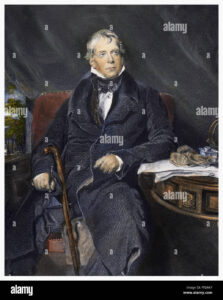Historical Novel:
The historical novel is an influential literary genre with a rich origin, continuous development, and significant contributions from major writers. It is one of the most popular branches of literary fiction. Writers all over the world have written historical novels successfully.
Overview
A historical novel is a literary genre in which the plot takes place in a setting located in the past. The historical novel is considered as a creation of the life of the bygone days in an imaginative manner. Historical novels often portray events or periods, bringing them to life with fictional characters or dramatizing real historical figures. These novels can explore the time’s socio-political, cultural, and economic contexts, making them a rich blend of fiction and historical reality. A historical novelist aims to bring to focus imaginatively the lifestyle, customs, and manners of the past.
The historical novel thus becomes a ‘magnetized history’. Life presented in a historical novel is vivid and thrilling. The historical novel is a novel of manners as a contemporary might have written in a language intelligible to the people of his times.
Origin:
The historical novel as a genre emerged in the early 19th century, although there were earlier examples of novels that dealt with historical themes. The rise of the genre is often associated with the Romantic movement, which emphasized the importance of history and national identity. The interest in the past, particularly in the Middle Ages, and the desire to explore the roots of contemporary society, fueled the popularity of historical fiction.
The genre’s formal origin is often credited to Sir Walter Scott, a Scottish author. He has been rightly called the Father of Historical novels in England. His novel Waverley (1814) is considered the first true historical novel. Scott’s works set a template for the genre, combining fictional characters with real historical events and figures. In his novels, there is a beautiful fusion of fact and fiction, history and romance. He has presented the spirit of time as well as place.
Portrayal of France, England and Scotland:
Scott’s historical novels portray the history of France, England, and Scotland. His favourite periods were those that were not very remote from the Reformation to the civil struggles of the 18th century. He favoured a language of common speech but heightened with poetry to create an illusion of the past. He made his novels alive and the readers felt as if they had become a part of that age or era, His presentation was accurate yet romantic.
Development:
Scott left a big legacy for future writers of Historical novels not only in England but countries like France and Germany. In England, Mrs Anna Eliza Bray was the first of his successor. Thackeray’s ‘Henry Esmond’ and “The Virginians’ are the two most historical novels.
19th Century: After the success of Scott’s novels, the historical novel became immensely popular across Europe. In France, Victor Hugo’s The Hunchback of Notre Dame (1831) is a significant example, blending historical detail with a compelling narrative set in 15th-century Paris. Alexandre Dumas, another French author, gained fame with The Three Musketeers (1844) and The Count of Monte Cristo (1844), which were set in the 17th century and early 19th century, respectively.
In Russia, Leo Tolstoy’s War and Peace (1869) stands as one of the most revered historical novels, depicting the Napoleonic Wars and providing deep insights into Russian society and history.
20th Century: The 20th century saw the historical novel evolve, with authors incorporating more complex narratives and exploring different periods. Writers like Robert Graves with I, Claudius (1934) offered a first-person narrative of the Roman Empire’s history, while Gone with the Wind (1936) by Margaret Mitchell depicted the American Civil War and its aftermath.
In the mid-20th century, the genre began to include more diverse perspectives and previously untold stories. For example, The Name of the Rose (1980) by Umberto Eco combines historical fiction with a murder mystery, set in a medieval monastery. This period also saw historical novels addressing themes of colonialism, such as Chinua Achebe’s Things Fall Apart (1958), which portrays the impact of British colonialism in Nigeria.
21st Century: In the 21st century, the historical novel continues to thrive, with authors exploring increasingly varied periods and cultures. Hilary Mantel’s Wolf Hall (2009) and its sequels offer a detailed, psychological portrayal of Thomas Cromwell in the court of Henry VIII. Other contemporary authors, like Ken Follett, with works like The Pillars of the Earth (1989), have found success in blending historical fiction with popular genres like thriller and mystery.
The genre has also expanded to include stories from marginalized perspectives, focusing on the experiences of women, indigenous peoples, and other historically underrepresented groups.
4o
